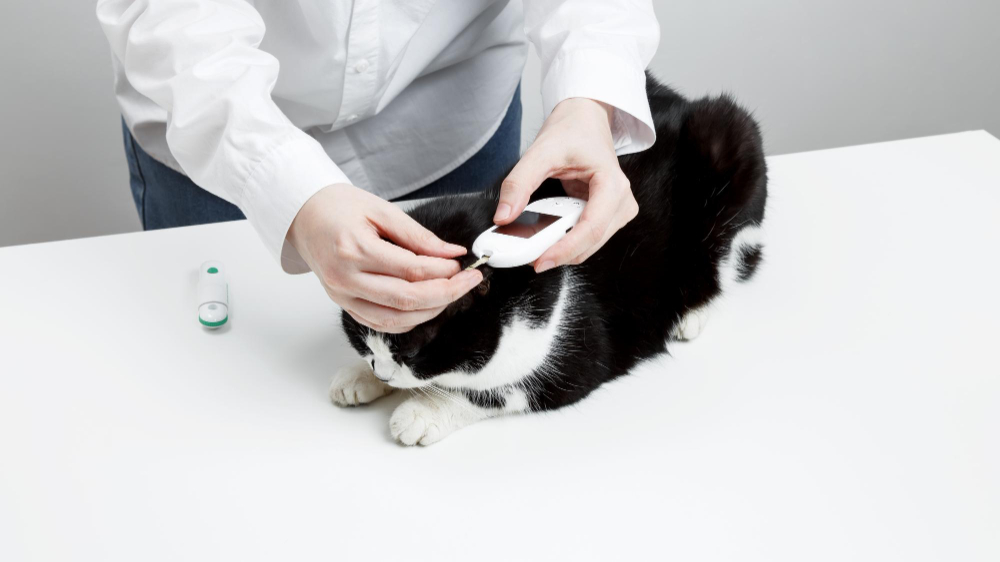Understanding Pet Diabetes & How to Provide Care

Understanding Pet Diabetes & How to Provide Care

Pets hold a special place in our lives, bringing joy, comfort, and unconditional love. However, as pet parents, there are times when their health challenges us to make important decisions for their care. One such condition that affects many pets, particularly cats and dogs, is diabetes. Like humans, pets with diabetes face unique health challenges, and managing it requires attention, dedication, and a lot of love.
For pet parents in Reno, NV, understanding pet diabetes is critical, especially when making thoughtful decisions about their pet's health and quality of life. This guide will walk you through what pet diabetes is, its causes, symptoms, and treatments, as well as how to determine when compassionate care like in-home euthanasia might be the right choice.
What is Pet Diabetes?
Pet diabetes, or diabetes mellitus, is a chronic condition that affects how an animal's body processes glucose (sugar). Normally, the pancreas produces insulin, a hormone responsible for helping glucose enter cells to be used for energy. However, in diabetic pets:
- Type 1 Diabetes occurs when the pancreas produces little to no insulin.
- Type 2 Diabetes occurs when the body develops insulin resistance, making it harder for glucose to enter cells.
Both forms lead to high blood sugar levels, which can cause serious health complications if left untreated.
Causes of Diabetes in Pets
Pet diabetes can be caused by several factors, including genetics, lifestyle, and underlying health conditions. Common causes include:
- Obesity: Excess weight increases the risk of insulin resistance.
- Breed Predisposition: Some breeds, like Poodles, Dachshunds, and Siamese cats, are more prone to diabetes.
- Age: Older pets are more likely to develop diabetes.
- Hormonal Imbalances: Conditions like Cushing's Disease or being unspayed can increase the risk.
- Diet: Poor-quality diets high in carbohydrates can contribute to obesity and diabetes.
Recognizing the Symptoms of Pet Diabetes
Early identification of diabetes in pets can significantly improve their quality of life. Keep an eye out for these common signs:
- Increased thirst and urination
- Unexplained weight loss
- Increased appetite
- Lethargy or loss of energy
- Cloudy eyes (more common in dogs)
- Decreased grooming or unkempt fur (more common in cats)
If you notice any of these symptoms, consult your veterinarian immediately for a thorough diagnosis.
Treating Pet Diabetes
Thankfully, diabetes in pets is manageable with proper treatment and care. Many pets go on to live happy lives after diagnosis. Common treatment methods include:
- Insulin Therapy: Most diabetic pets require daily insulin injections to regulate blood sugar.
- Dietary Changes: Switching to high-protein, low-carb diets helps stabilize blood sugar levels.
- Exercise: Regular, moderate exercise aids in glucose regulation and weight management.
- Monitoring: Keep track of your pet’s blood sugar levels, weight, and overall behavior to identify any changes early.
- Routine Vet Visits: Regular check-ups ensure your pet’s treatment plan is effective and adjusted as needed.
The Emotional Toll and Challenging Decisions
Caring for a pet with diabetes can be a rewarding, yet demanding, experience. Managing insulin shots, diet adjustments, and frequent vet visits requires time and financial resources. While most pet parents make these commitments willingly, there may come a time when your pet’s health takes a turn for the worse.
Complications of untreated or advanced diabetes, such as kidney failure, infections, or nerve damage, can severely impact your pet's quality of life. This can be incredibly hard to witness as a loving pet owner.
Compassion and love guide us in these moments. For pet parents in Reno, NV, options like in-home euthanasia offer a peaceful and dignified way to say goodbye in the comfort of your pet’s favorite environment.
Understanding When to Consider Compassionate Euthanasia
Making the decision to euthanize a beloved pet is heartbreaking, but it’s sometimes the most humane choice when their pain and suffering outweigh their ability to enjoy life. Here are key signs that it may be time to consider this option:
- Your pet is in constant pain or discomfort that cannot be managed effectively.
- Their diabetes-related complications make eating, drinking, or mobility difficult.
- They experience frequent hospitalizations or emergencies with no improvement.
- They seem withdrawn or no longer enjoy their usual activities.
Every pet is unique, and consulting with your veterinarian is crucial to evaluate your pet’s quality of life. If you feel that this is the time to say goodbye, in-home euthanasia can provide a dignified and peaceful transition for your furry friend.
The Benefits of Choosing In-Home Euthanasia
For pet parents in Reno, NV, choosing in-home euthanasia offers several benefits during a very emotional time:
- Comfort and Familiarity: Your pet remains in their favorite space, surrounded by loved ones.
- Less Stress: Avoid the stress and fear that may come with a veterinary clinic visit.
- Private Goodbye: You can say your goodbyes in a more personal and intimate setting.
At Rover Veterinary Care, we understand how challenging this decision can be. Our compassionate team is here to guide you through the process, ensuring your pet’s comfort and dignity come first.
How Rover Veterinary Care Can Help
At Rover Veterinary Care, we specialize in providing compassionate and professional in-home euthanasia services for pet parents in Reno, NV. Our goal is to support you and your pet during this difficult time, offering peace of mind and respectful care.
Why Choose Rover Veterinary Care?
- Experienced Professionals: Our team of licensed veterinarians ensures your pet is in the best hands.
- Supportive Guidance: We walk you through every step of the process, so you’re never alone.
- Transparent Pricing: We offer free estimates, ensuring you have all the details upfront.
- Empathy-Driven Care: We treat your pet as if they were our own, with love and compassion in every interaction.
Closing Words
Understanding pet diabetes and its impact can help you provide your companion with the love and care they deserve throughout their life. From managing their condition to recognizing when it’s time to make hard yet humane decisions, you are never alone in this journey.
If you’re considering in-home euthanasia in Reno, NV, reach out to Rover Veterinary Care. We’re here to support you and your pet with the utmost compassion and respect.
Contact us today for a free estimate or to learn more about our services. You don’t have to go through this alone—we’re here to help ensure your pet’s comfort and dignity every step of the way.
